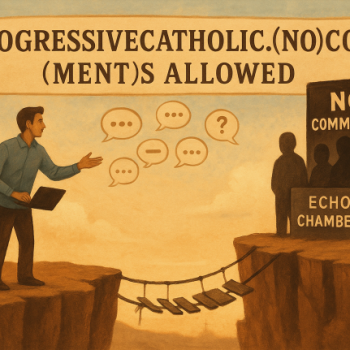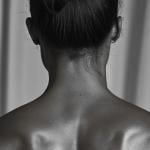Take old gal for granted and one day she’ll be gone
It’s too easy to take things for granted, to not be fully present in each moment of life.
This week as the Chicago Sun-Times gets ready to move a few blocks west up the river to our new home on Orleans, I’ve been thinking about all that floats by in my world without notice.
It’s how I found myself at the noon prayer service Wednesday at the Seventeenth Church of Christ, Scientist on Wabash.
Nearly every day for the last four years, I’ve walked or driven by the round stone facade of the Seventeenth Church of Christ, Scientist across the river from the Sun-Times offices without going in, a neighborhood spiritual rose I’ve never stopped to smell.
Occasionally I’ve wondered what goes on inside and who, unlike myself, ventures in for a while to pray or meditate or whatever it is they do. On this particular afternoon, sprinkled among the puce-colored seats of the semi-circular sanctuary were eighteen souls — six men and 12 women. As I had expected, they came to pray, but perhaps more than that, they came to listen.
For the better part of an hour, First Reader Mary Beerman read biblical passages from Proverbs, Exodus, the Psalms, Isaiah and the Gospel of St. John. . . . “Let not your heart be troubled. . . . In my father’s house there are many mansions.”
Beerman read some thoughts from Mary Baker Eddy, foundress of Christian Science, as recorded in the religion’s textbook Science and Health. The modest congregation sang a few hymns and then it was time for members to share their testimonies.
A few people stood to give thanks for the guidance God had given them through the years as they navigated the rough waters of life. Soon it was time to go and the quiet congregation adjourned to the streets of Chicago and their no-doubt busy lives.
My visit to Seventeenth Church inspired me to appreciate a few of the everyday gems I’ve taken for granted throughout the years.
So, instead of looking in the window as I have a thousand times, I walked into the Jazz Record Mart and perused aisle upon aisle of CDs and vinyl records. I left with a copy of an early album by Chicago jazzman Kurt Elling I should have had in my collection but didn’t. It’s called “Close Your Eyes.”
Instead of walking by without giving it more than a passing glance, I stood in front of a steel sculpture on the southern banks of the river at Wabash and took it in. The sculpture by Oak Park artist Barry Tinsley, called “Southern Cross,” looks a bit like an old gyroscope.
Thursday morning, instead of driving to work, I took the train to Madison Street, hopped aboard the Wendella Riverbus, paid my $3 and enjoyed a magnificent ride to the dockside doorstep of the Sun-Times.
Sitting alone on the stern as the boat headed east toward the lake, the city in all its magnificence unfolded before me. Chicago, my adopted city, is such a beauty. It’s been so kind to this particular carpetbagger over the years, patiently revealing itself to me as I’ve slowly, sometimes clumsily, learned its secrets and ways.
As the undistinguished, modern tan building that will on Saturday become the Sun-Times’ new home drifted into view, I was overwhelmed with gratitude for the opportunity that our ugly, old gray gal on Wabash gave me to see her city with new eyes.
From my vantage point in a window seat on her fourth floor, I’ve chronicled the faith of Chicago as it deals with the strange new world we were jarred into by a cataclysm none of us could have predicted on that sunny September morning a few years ago. A true privilege.
As long as I live, I’ll never forget the image of our stunned staff gathered at the city desk in the middle of the newsroom — some praying, some crying, all fully present in the awfulness of the moment — as our chief John Cruickshank soothed us with a few kind, wise words and focused our attention at the task ahead of us that day and in the days to come.
To try to make sense of the senseless.
To explain the beauty, wonder, humor and complexity that remained in our city and our world despite the best efforts of a few madmen who had attempted to obscure it forever.
We did. And we will.
Mark Twain once described Chicago as “a city where they are always rubbing a lamp, and fetching up the genii, and contriving and achieving new impossibilities.”
I’d like to think the same could be said of the Sun-Times itself.
Time and again I’ve watched in wonder as my colleagues have coaxed geniis from bottles every day. As each daily deadline loomed in this most undistinguished, tired space — call it the Little Barge That Could — they’ve achieved what eight hours earlier seemed like only a vague impossibility.
For days now camera flashes have been going off around the office like indoor fireworks as my co-workers try to capture that magic for posterity before we move to our new joint and start afresh.
As I write this, Elling is singing his version of “Never Never Land” from “Peter Pan” in my headphones.
In the middle of the song, Elling improvises a poem: “My friends, every day we sit in our everyday chairs and go to our everyday work, drink from the everyday cup, but we never allow ourselves to go into the extraordinary places in our minds, in our hearts,” he intones in trademark vocalese.
I can’t help but pause and give thanks to the old gray gal for allowing me to see the extraordinary in the ordinary.
May our new windows reveal a bold new world, and may we recognize all that it has to offer.
Copyright © The Sun-Times Company
All rights reserved. This material may not be published, broadcast, rewritten, or redistributed.














